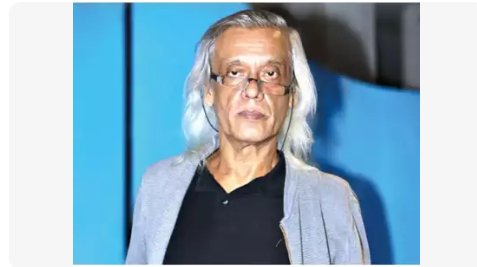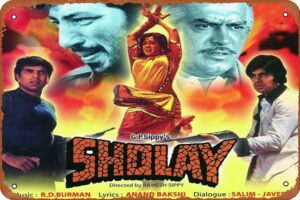Sudhir Mishra: Political outrage in our country is contrived and sponsored – Exclusive | Hindi Movie News
[ad_1]
How do you feel about the response that Afwaah has received?
Afwaah is the best-reviewed film of my life. Ninety percent of the reviews have been positive. A few did not like it, so what? It is their right to not like it. Even Hazaaron Khwaishein Aisi was not liked by a couple of people.
Afwaah was a small release and this is what is happening to different kinds of films all over the world. People of a certain kind are not going to the theatre. Theatres are for spectacular films. These films (like Afwaah) are going to have a small release and then going to find an audience on an OTT platform. The real release will be the platform. Even the small number of audiences that are coming to theatres are clapping by the end of it.
How did you come across the story for Afwaah?
It is all over. I am just a filmmaker who is reacting to the times. This story is relevant to whatever is happening around me. The absurdity of today’s world where nothing is happening but so much could happen. The foolishness of the world where you’re accusing people without any basis and then it becomes a terrifying nightmare where people lose their lives. That is the idea of the film.
Also, the second idea of the film is when you spread hate, it eats you at the end. That’s the problem with hate. I think that was the necessary thing about making this film and I’m glad that I made it. I have never received this kind of love ever in my life. In Hazaaron… people were saying that it was a Naxal film. Those people must have gone but Hazaaron… is still alive.
Do you prefer making films that have a political nature?
I refuse to make films that are likable. I am not a politician. I am a filmmaker and I have to make a film that starts a conversation. I am not saying that what I am saying is necessarily 100 percent right. I am saying, discuss it. That’s why I did the podcast with Vivek Agnihotri. I saw The Kashmir Files. And if tomorrow it is banned, I will stand for it.
I am not a megalomaniac. If one person does not like the film, I can’t agree with that criticism. Because unfortunately, people from Bombay know nothing about the realities I am talking about. And I’ll tell you this very arrogantly, people can criticize my technique, my craft, but nobody in Bombay has the same intelligence as me. Nobody in the Bombay film industry has the political understanding of a Sudhir Mishra. What can I do, if you don’t know the reality of India? Why should I be upset with idiots?
Do you think cinema that is political in nature can change the audience’s perception on a large scale?
No. If Chaplin couldn’t stop World War II after The Great Dictator then who the hell am I? You can participate in a conversation. You can provoke a conversation. People change for much bigger reasons and much bigger people than us. Mahatma Gandhi can change people, not Sudhir Mishra.
When a film with political undercurrents becomes popular, does it gives an outlet for the audiences’ angst?
It can help start a conversation along the line. I made Afwaah with a strategy. My film says that nothing happened, then why do you say that it happened? A comedian’s show is banned or he is put in jail because he might crack a joke. I am not kidding. The authorities said it. That is absurd, no? I am not questioning the law. I am questioning the absurdity – why are you taking the law in your hand? The ones breaking the law are spreading the rumour. Similarly, no man or woman has the right to force a girl to do what he or she wants.
Has cinema become a soft target for right-wing – left-wing debates? What is your take on that?
Our industry is the soft target. It has been maligned and it’s unfair what some people do to the industry and the conversations that occur because of that. They take the 1 percent of the industry and talk. Ninety nine percent of the industry is made up of very hardworking people, who tend to create joy for other people and earn an honest living.
Do you think the politics of cinema has gone overboard in the last few years?
It’s too much. You are distracting the people from real issues. It was absolutely absurd what they did with Shah Rukh Khan’s son. The judges are saying that they did wrong. The Prime Minister is saying that leave the film industry alone. The courts and political establishments are saying that the industry is being unfairly dealt with. I agree with it. I am glad that the Prime Minister has spoken on behalf of the industry.
Do you feel socio-political outrage in our country is very selective?
It is contrived and sponsored. The people are absolutely democratic. If they don’t like something they don’t watch it. In 1987-88, they said that Tamas (Govind Nihalani’s film with Om Puri) will cause a law and order problem. The court passed its justice and there was no problem. In those days it was screened on Doordarshan and the whole country watched it. There was huge viewership.
Your podcast with Vivek Agnihotri caught the attention of many. Was it a fruitful debate for you?
We had a very nice conversation. I know him very well and for a long time. We should be able to step up and say to each other what we like and did not like. Vivek is hurt. I was telling him that nobody is against him. They can have an opinion against your film but that doesn’t mean they are against you. You can have a discussion.
Can a contemporary filmmaker make films on volatile subjects, like a love story between Hindu-Muslim characters or a political drama between right-wing and left-wing characters?
People have polarized these things. Actually, nobody has the time to know what’s happening in somebody else’s personal affairs. As long as there’s consent, everything is alright.
Does the polarization of people affect cinema as well?
Young people get scared of doing anything. People are generally okay. It is some fringe groups that are the problem. I don’t think the authorities are saying anything.
Do you still find it tough to make the kind of cinema that you are known for? If yes, what is the struggle like?
It has always been tough. It was difficult to make Hazaaron…, Dharavi or any film that I wanted to make. If you want to make individual cinema, which is yours, then it is difficult. It is with the grace of Anubhav Sinha that Afwaah got made.
[ad_2]
Source link








